- funding Stage : Pre-Series A
- Raising Amount : KRW 1.5 B
- Desired Fundraising Timeframe : 4Q 2024
Most diseases, including cancer, can have their risks significantly reduced if detected early. Biomarkers are crucial for detecting the possibility of diseases early on. For example, the mutation status of the ‘BRCA gene’ is commonly used as a biomarker when assessing the risk of breast or ovarian cancer. Notably, about ten years ago, American actress Angelina Jolie preemptively had her breasts and ovaries removed after discovering a mutation in her BRCA gene. Biomarkers like ‘C-reactive protein’ are also used for conditions with severe inflammatory responses such as sepsis, pneumonia, or cardiovascular diseases.
Although biomarkers are essential for quickly and accurately diagnosing specific diseases, the main challenge is extracting these biomarkers with high purity, which is often difficult. For instance, detecting genetic mutations requires extracting a significant amount of pure DNA from blood or tissue samples, which is complicated by the presence of various other substances within these samples.

Traditionally, ‘clean-up beads’ have been used to extract biomarkers like DNA and RNA with high purity. The company featured today, KINGO Bio, has developed a product called ‘GraBeadsTM‘ that significantly enhances the performance of traditional clean-up beads, allowing hospitals and pharmaceutical companies to use high-purity biomarkers for early disease diagnosis.
The working principle of clean-up beads is as follows: Small beads, several hundred nanometers in size, are introduced into a test tube containing blood. These beads contain magnets, but not ordinary permanent magnets. Instead, they contain paramagnetic materials that only become magnetic in the presence of an external magnetic field. The surface of the clean-up beads is coated with chemical functional groups that specifically bind to DNA, RNA, antibodies, etc. Once these functional groups attach to the biomarkers and an external magnet is applied, the clean-up beads with the attached biomarkers become magnetic and adhere to the magnet. Continuously rinsing the test tube with purified water then washes away all other blood components. Finally, removing the magnet allows the separation of clean-up beads from the biomarkers, resulting in the extraction of high-purity biomarkers.
KINGO Bio has developed GraBeadsTM to overcome the major issue of biomarker loss due to weak magnetism in existing clean-up beads. GraBeadsTM contains magnetic nanoparticles that are about ten times stronger than those in current products. Since blood or saliva containing DNA or RNA is highly viscous, it requires a strong wash to separate other substances. If the beads’ magnetism is weak, they cannot retain biomarkers near the magnet. However, the superior magnetism of KINGO Bio’s GraBeadsTM allows for the provision of biomarkers with much higher purity and yield.
Jinyeop Lee, the CEO of KINGO Bio, began his entrepreneurial journey in 2018 while pursuing a Ph.D. in mechanical engineering at Sungkyunkwan University. Like many companies that take pride in their origins, KINGO Bio’s name reflects its connection to Sungkyunkwan. The team comprises individuals from diverse academic backgrounds, including chemistry, biochemistry, and biotechnology, who have developed a range of technologies from core particles with strong magnetism to the chemical functional groups that adhere to their surfaces. While currently focused on detecting DNA and RNA, KINGO Bio plans to develop magnetic nanoparticles that will bind to antibodies, proteins, and numerous other substances in the future.
However, the path ahead is challenging. KINGO Bio faces competition from global giants like Beckman Coulter and Thermo Fisher, which are multibillion-dollar enterprises. Despite formidable competition, KINGO Bio remains confident in its products.
Although it is a challenging path, KINGO Bio is not shying away from competing with the giants of the global market. This summer, the company will participate in the Silicon Valley program supported by the K-Startup Center. The outcomes of their endeavors in Silicon Valley, the main stage for startups in the U.S., are eagerly anticipated.
What problems are KINGO Bio trying to solve?
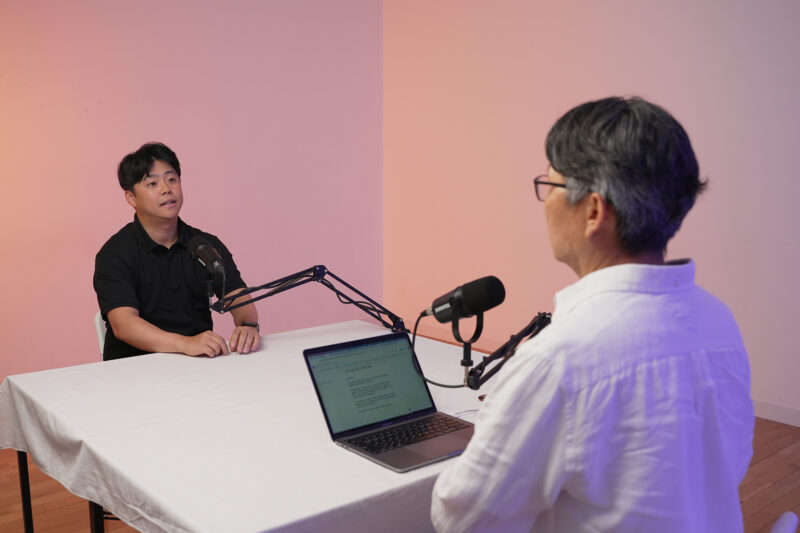
The ultimate challenge our team is addressing is the difficulty of early cancer diagnosis. If cancer is not detected early, treatment success rates significantly decrease, causing considerable distress for both patients and healthcare professionals. Our current sample preprocessing technologies do not perform adequately, making it difficult to separate biomarkers from clinical samples, particularly in cases of suspected early cancer. While many companies focus on post-processing technologies like Next Generation Sequencing (NGS) or Polymerase Chain Reaction (PCR), these techniques face challenges in early diagnostics due to limitations in the preprocessing stage. Most preprocessing techniques require centrifugation, which can damage biomarkers, decreasing sensitivity and reducing the accuracy of early diagnosis.
KINGO Bio is particularly focused on addressing the inefficiencies and high costs associated with clean-up beads used in NGS analysis. The existing market for clean-up beads has several issues: high product costs, weak magnetism leading to particle loss even with strong magnets which prolongs the experimental process and decreases efficiency, and a high rate of loss where significant amounts of DNA and libraries are lost during the clean-up process, resulting in poor final yields.
As the NGS market continues to grow rapidly, clean-up beads have become an essential component. However, the existing problems with these beads decrease the efficiency and accuracy of experiments.
How does KINGO Bio address this issue?
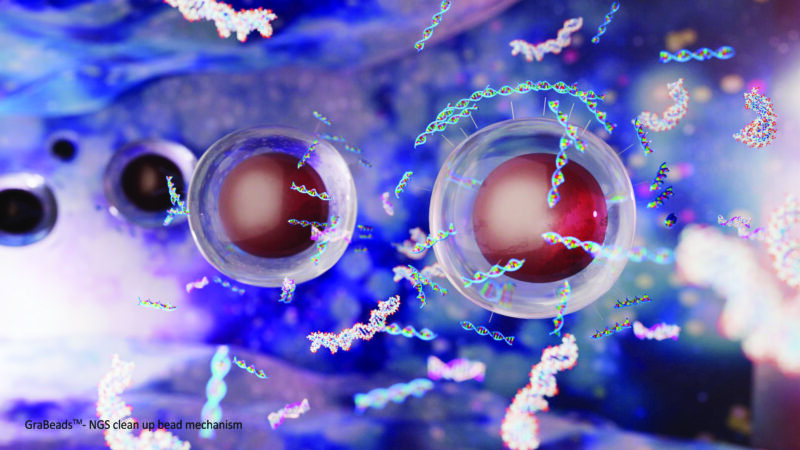
Our team has developed a proprietary solution called GraBeadsTM, which are our unique Clean up beads. GraBeadsTM uses magnetic nanoparticles to separate and concentrate biomarkers from samples, enabling high-purity diagnostics. This technology also allows for the detection of early-stage cancers. Particularly, GraBeadsTM excel during the NGS (Next Generation Sequencing) clean-up process, removing impurities from samples like blood and concentrating biomarkers to maximize the accuracy and efficiency of NGS analysis.
KINGO Bio is a specialist company that, through years of research, has developed various technologies including the core material for magnetic nanoparticles, coating techniques, and functional group immobilization. We handle every step of the production process, from the basic units of magnetic nanoparticles to the final product.
Our GraBeadsTM – NCB (Clean up beads) offer the following unique features:
Firstly, they possess strong magnetism. GraBeadsTM are designed with a stronger magnetic force than existing products, minimizing particle loss and accelerating the experimental process. This reduces both the time and fatigue associated with experiments.
Secondly, they are cost-effective. We offer our products at a lower price compared to the market-leading products, reducing the financial burden on researchers.
Thirdly, they deliver high DNA yields. Our products minimize the loss of DNA and libraries, providing high DNA yields. This allows researchers to obtain more accurate and reliable results.
Looking ahead, we aspire to produce specific magnetic nanoparticles not only for NGS but also for various other industrial applications. Our goal is to enhance efficiency and provide economic benefits to our customers, expanding the potential applications in various fields.
What competitive and technical advantages does KINGO Bio have over its competitors?
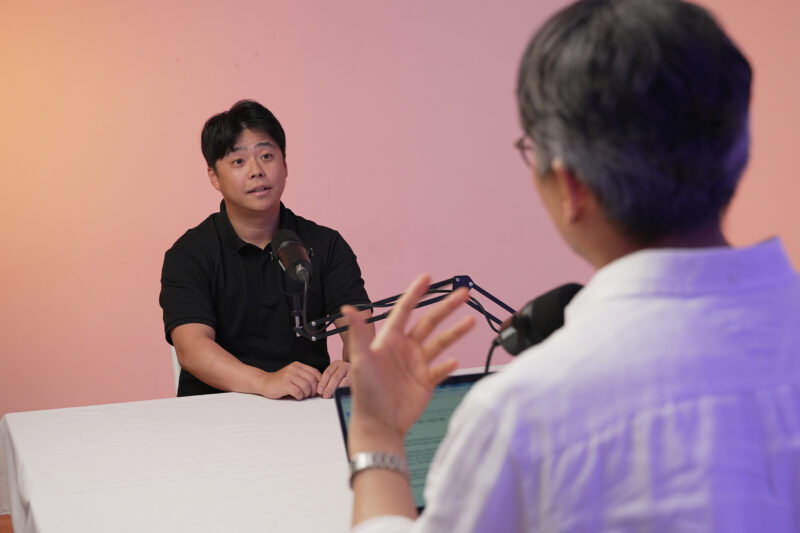
GraBeadsTM possess a magnetic force ten times stronger than that of existing magnetic particles, allowing for the separation of biomarkers from samples without loss. This improves diagnostic accuracy by over 20% and reduces the time taken in the diagnostic process by at least 30%. Especially during the NGS clean-up process, GraBeadsTM effectively removes impurities and quickly concentrates biomarkers, significantly enhancing the sensitivity and accuracy of NGS analysis.
Currently, the market is dominated by Beckman Coulter’s AMPure bead, which is sold at a very high price, causing significant cost concerns for customers. In contrast, our product matches the performance of the leading brands while being much more affordable. Moreover, AMPure bead’s weak magnetic strength leads to lengthy DNA separation and purification processes, increasing the fatigue of experimenters. It also suffers from DNA loss due to particle loss during the washing steps. Our product addresses these issues with strong magnetism and optimized particle characteristics, making the DNA separation and purification processes much faster and more efficient, minimizing DNA loss, and providing higher DNA yields. This ensures that our customers can achieve more accurate and reliable experimental results.
KINGO Bio has established a unique competitive position in the market through these technological advantages, aiming to deliver superior value to our customers.
What products and services does KINGO Bio offer, and what is their current status?
KINGO Bio offers three main products:
Firstly, our flagship product is GraBeadsTM-NCB, a Clean up bead designed specifically for NGS DNA analysis. This product optimizes DNA separation and purification during the NGS process, reducing experiment time and enhancing DNA yields.
Secondly, we provide an automated nucleic acid extraction device. This device facilitates the automatic extraction of pathogenic DNA from blood samples, enabling fast and accurate molecular diagnostics.
Thirdly, we offer a nucleic acid extraction kit. This kit is designed for easy use and high accuracy, making it ideal for extracting pathogenic DNA from blood samples.
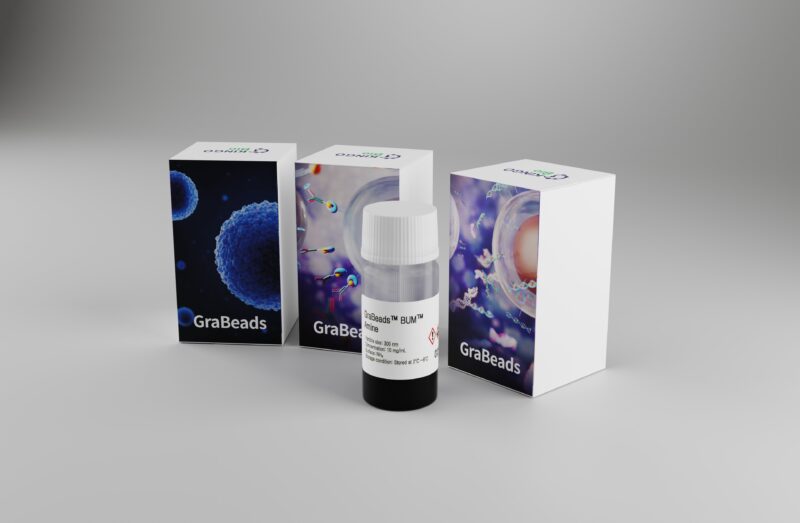
Among these, the nucleic acid extraction device and kit are already commercially available. However, while GraBeadsTM has completed product development, it is currently in the feedback collection phase with select clients and data is being gathered for performance testing and sales. Additionally, ongoing research is focused on enhancing long-term storage stability.
Our immediate focus is on the final commercialization of the Clean up beads. We are diligently working to improve storage stability and expand our market globally, beyond just domestic sales.
What market size do our products/services target, and who are our key customers?
Our products are aimed at the global Next Generation Sequencing (NGS) market and the liquid biopsy market. The global NGS market is expected to reach approximately $20 billion by 2025, while the liquid biopsy market is projected to exceed $3 billion. Our primary customers are NGS service providers and diagnostic kit manufacturers, who increasingly require faster and more accurate diagnostic solutions due to the rising demand for early cancer detection and precision medicine. GraBeadsTM meets these needs perfectly.
What is KINGO Bio’s business model?
Our business model is geared towards sustainable revenue generation. Firstly, our Clean up beads for NGS analysis are consumable items that generate consistent demand and steady revenue. Additionally, ongoing revenue streams are secured when our Clean up beads are included in the kits produced by NGS kit manufacturing companies. With the increasing number of companies and hospitals conducting NGS tests, the market demand and usage continue to grow, reinforcing our business model and enabling sustained growth.
What achievements has our team made so far?
Our team has proven the exceptional performance of GraBeadsTM in initial market tests. We are actively engaged in comparative evaluations with existing Clean up Beads in partnership with various NGS analysis service companies in Korea. Notably, we are coordinating sample tests with companies like Ainocl, which focuses on Single Cell-based omics analysis, Fix Institute, specializing in microbiome NGS analysis, and the Green Cross Medical Foundation for GC Genomics tests.
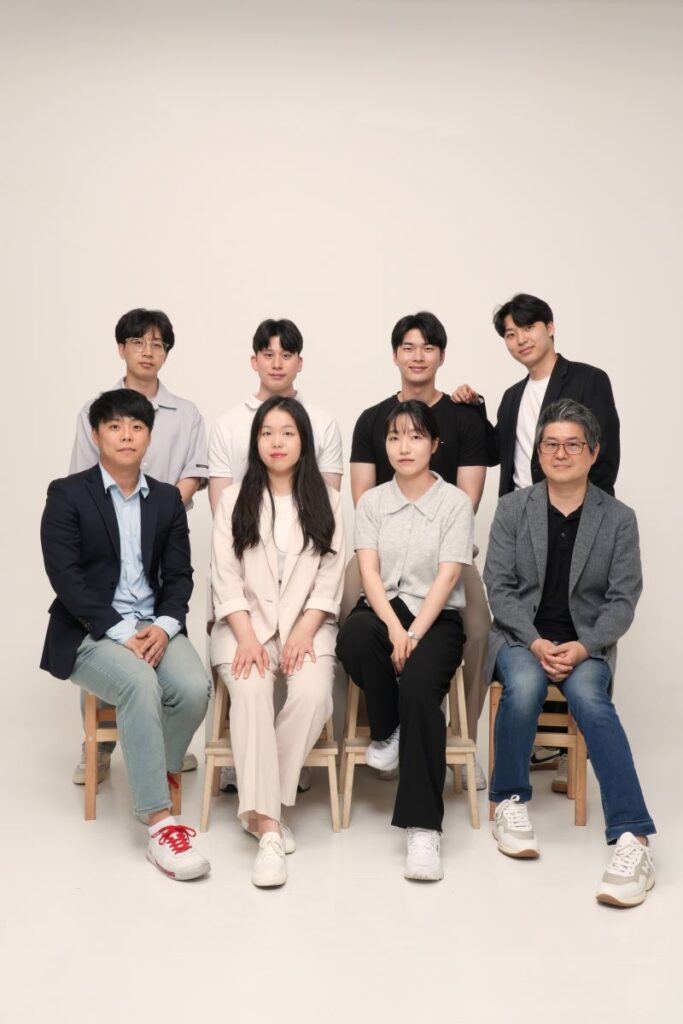
Additionally, we have secured nine domestic patents related to magnetic nanoparticles and filed for patents in the USA and China last year. Earlier this year, research results utilizing GraBeadsTM for biomarker separation were published in the prestigious SCI journal, Microbiology Spectrum, in the United States. This recognition from the academic community confirms the reliability and excellence of our product.
Currently, GraBeadsTM is nearing the end of its productization phase, with full commercialization planned for late October this year. This will enable a rapid entry into the market. We also plan to collaborate with various research institutions to explore further applications of the product and expand the potential market for GraBeadsTM.
What are KINGO Bio’s competitive strengths?
Our team’s competitiveness stems from several key factors:
Firstly, expertise and experience. We have conducted extensive research on magnetic nanoparticles for many years and possess the capability to synthesize the particle cores ourselves. This depth of research and development experience ensures the high quality and performance of our products.
Secondly, innovative technology and market potential. While the field of magnetic nanoparticles is still relatively unexplored, it holds tremendous potential. Currently, there are few companies in Korea that focus on magnetic nanoparticles as their main product, positioning us as pioneers in this sector. The potential value of this industry is significant, and our team is keen to maximize it.
Thirdly, a customer-centric approach. Many of the current market-leading products are based overseas, which often makes it challenging for domestic users to receive feedback or resolve queries. In contrast, we have the ability to quickly incorporate customer feedback and customize our products accordingly. While we are still in the early stages, this capability will enable us to provide superior service in the future.
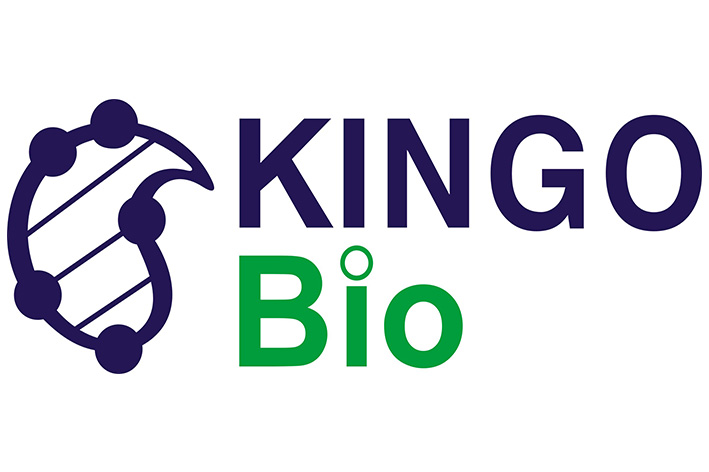
Three reasons why we need investment!
Firstly, the innovative technology behind GraBeadsTM significantly enhances the accuracy and efficiency of early cancer diagnostics. Compared to existing Clean up Beads, GraBeadsTM uses ten times stronger magnetic force to more effectively separate and concentrate biomarkers. This brings significant benefits to both patients and medical professionals, greatly contributing to the success rates of early cancer detection.
Secondly, we have already collaborated with several NGS analysis service companies in Korea to validate the performance of GraBeadsTM in the market. Through tests with Ainocl and Fix Institute, we have proven the product’s superiority and received positive feedback from various medical institutions. This feedback acts as a critical indicator of the commercial viability of GraBeadsTM.
Thirdly, the KINGO Bio team is comprised of top experts in their fields, capable of successfully leading technology development and commercialization. We hold nine domestic patents and have filed for patents in the USA and China, strengthening our international technological protection. Additionally, our capability has been recognized academically, as demonstrated by a paper on biomarker separation using GraBeadsTM published in Microbiology Spectrum. With the product nearing the final stages of commercialization, we anticipate a rapid market entry. The exceptional potential of our magnetic particle technology, particularly in terms of material separation, allows for extensive scalability across various industries, ensuring continued growth potential.
For these reasons, we seek investment to lead innovations in the early cancer diagnosis market through the commercialization of GraBeadsTM and to become a front-runner in magnetic nanoparticle technology applicable across diverse fields.
What efforts are we making for international expansion, and what are the outcomes?
While still in the early stages of securing a pathway to international markets, we are making the following efforts:
Firstly, international market research: We are identifying market trends and demands to assess the viability of overseas sales. This helps us understand regional customer requirements and prepare customized products and services.
Secondly, participation in international exhibitions and conferences: We have attended overseas exhibitions to identify potential customers and promote our company and products. These experiences help us prepare for global market entry and understand market needs.
Thirdly, establishing international partnerships: We are exploring potential collaborations through meetings with various global companies. Particularly, partnerships with companies that have established distribution networks are being prepared to facilitate localized product offerings and efficient market entry. These efforts lay the groundwork for future international expansion.
Through these initiatives, we aim to grow into a competitive player in the international market.
How is the KSC Silicon Valley Launch Program helping?
Currently, the program is providing support in various aspects:
Firstly, it assists in business development (BD) and product development (PD) upgrades, enhancing the competitiveness of our products and services as we prepare to introduce them to the global market.
Additionally, it supports the establishment of a pipeline for consulting potential customers and advisors within Silicon Valley. This pipeline is helping us enhance our understanding of the local market, explore promising business opportunities, and expand our global network during the preparation phase.
MORE FROM THE POST
- [Korean Startup Interview] OCULIGHT: Shining a Light on Safer, More Accurate Cataract Surgeries
- [Korean Startup Interview] Mediark: Revolutionizing Patient Diagnosis and Doctor Efficiency with AI-Based Medical Interview System
- [Korean Startup Interview] How HOYA LAB is Tackling Gene Therapy’s Toughest Problem with AI
- [Korean Startup Interview] Beyondmedicine, Pioneering World’s First Digital Therapeutic for TMJ Disorders
- [Korean Startup Interview] Peptirna Therapeutics Aims for Global siRNA Market with Peptide Delivery Platform
- BioHealth
- biomarker
- clean up beads
- EN
- GraBeads
- Interview
- kingo bio
- Korea
- Korean startup
- Korean startup interview
- Startup Together
- wow together
- WOWTALK
Share
Most Read
- 1
- 2
- 3
- 4
- 5





Leave a Reply